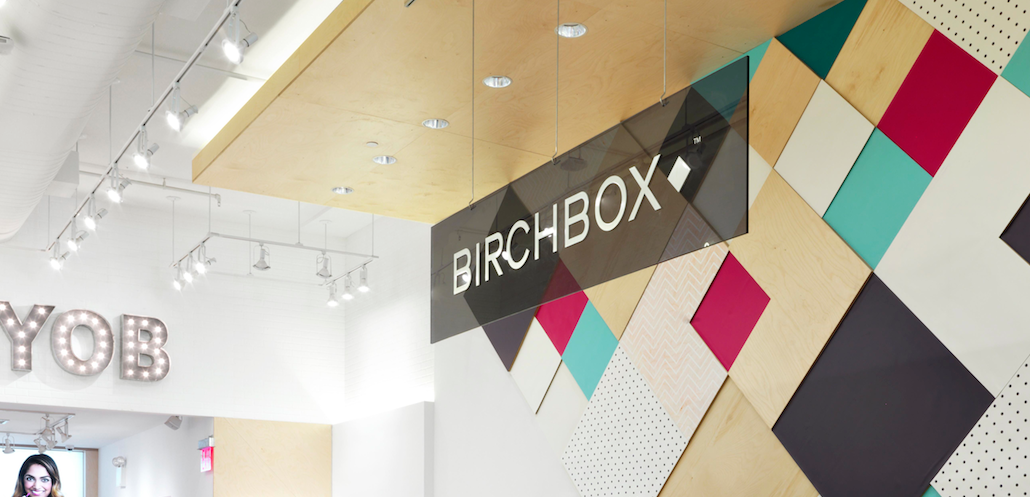Connect with execs from The New York Times, TIME, Dotdash Meredith and many more

To expand its online business, Birchbox is looking offline.
The subscription beauty-box business is expanding its brick-and-mortar presence in the U.S. Its first retail store opened in SoHo neighborhood of New York City a year ago; the brand announced Monday that two more stores — a second Birchbox and the first Birchbox Man store — will open in 2016. After those two stores open, there will be more to come, according to CEO Katia Beauchamp.
“Our subscription service grew much faster than anticipated,” said Beauchamp, who started Birchbox with Hayley Barna in 2010. “So that’s where our resources went. Now we’re much more eyes wide open on both sides.”
Along with sending curated boxes of sample-sized beauty products to its 1 million monthly subscribers, Birchbox sells full-sized versions of every product it carries in its online store. Of those subscribers, about half regularly make purchases on birchbox.com; about 35 percent of Birchbox’s revenue is earned from e-commerce. The company wants to see those numbers grow, so it is investing in a physical retail presence.
Birchbox’s problem, however, is that subscribers are buying the products they first tried in their boxes from the brand’s competitors. A June Bloomberg study found that Sephora’s sales were bumped 5 percent by Birchbox subscribers; Ulta saw a 6 percent bump.
The brand is working to combat that loss. It believes that its stores can provide a “lifestyle experience” that the competition can’t and also turn subscribers into online customers. According to Beauchamp, offline customers have a higher lifetime value with the company.
“We can see it really impacts the customer when they come into see us. They come in to discover products but also to close the loop on that discovery,” she said.

In the two-level Birchbox storefront in New York City, engagement is key. The set-up mirrors the brand’s online store, featuring amenities like interactive technology (video tutorial displays, a “product matchmaker” touchscreen and user product reviews, for example), a build-your-own-Birchbox sample section and salon services. Each facet of the store can also teach Birchbox more about its consumers’ behavior.
“We’re seeing a desire from retailers to focus on engagement, rather than just selling, since the customer is a click or swipe away from buying from a competitor,” principal Forrester analyst Adam Silverman told Digiday.
With only one current store, Birchbox is drawing attention to its brick-and-mortars by playing up the hype. To choose the next locations for the upcoming Birchbox and Birchbox Man stores, Birchbox is asking fans to submit their zip codes in an online competition. The company is planning on a pop-up road trip in August and will visit the three cities with the highest online submissions, bringing a scaled-down version of the Birchbox store in tow. Of those three cities, the two with the highest turnout will be home to the 2016 store openings.

The retailer’s strategy isn’t to grow by way of opening more stores. It’s geo-tagging its fans in hopes of turning box subscribers into commerce customers.
“Generally, when you open a store, it has a direct impact on your ability to acquire new customers,” said Silverman. “E-commerce sales in the same region as the store increase with the ability to drive new customers and influence sales physically and digitally.”
Beauchamp said that the company is serious about pushing forward with its brick-and-mortar growth, even as companies like Gap shutter stores.
“The more we’re in the room with customers, talking to them and learning about their Birchbox experience, the better we’ll be as a company. We’re a big believer in that,” she said.
More in Marketing

In Graphic Detail: Inside the state of the creator economy industrial complex
The creator economy might have started out as an alternative to traditional media, but is becoming more and more like it as it professionalizes.

Shopify has quietly set boundaries for ‘buy-for-me’ AI bots on merchant sites
The change comes at a time when major retailers like Amazon and Walmart are leaning into agentic AI.

WTF is ‘Google Zero’?
The era of “Google Zero” — industry shorthand for a world where Google keeps users inside its own walls — is here.





